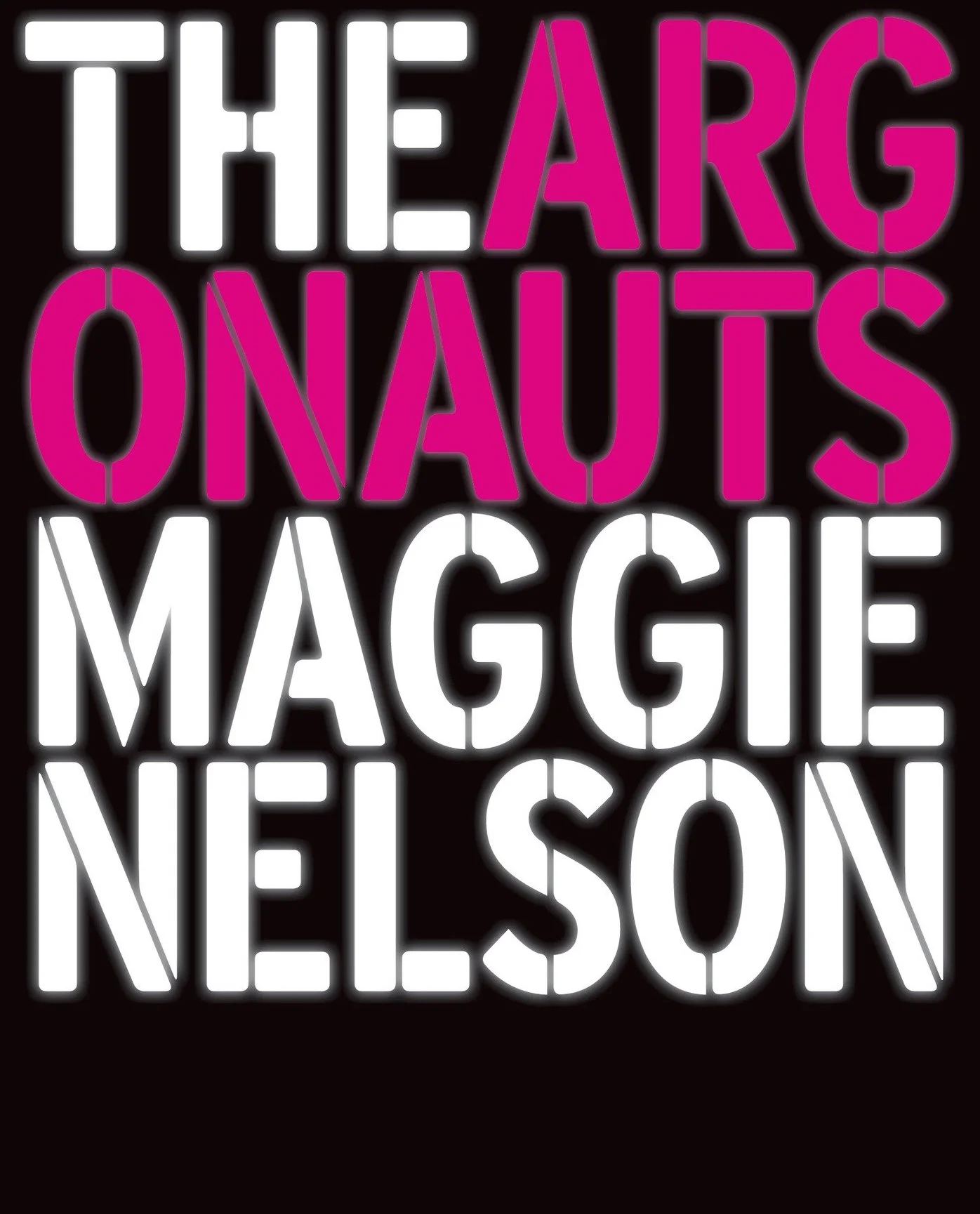
Photo: Harry Dodge

[](#)[](#)
an identity that can be distilled from the past and used to imagine a future
Maggie Nelson on Relationships, Disindentification, and her new book The Argonauts
_The Argonauts_ is difficult to categorize; it is an investigation of politics, sexuality, identity, and gender roles, told through the underlying narrative of Nelson’s own creation of a family unit. It is a study of the ways in which any true representation of a life defies categorization, despite our culture’s incessant need to do just that. Centered around her domestic life with trans artist Harry Dodge, the book interlaces canonical texts on philosophy, psychology, and politics with Nelson’s own accounts of the tender mundanities and dramas that occur as she navigates her own family life.
The book has an anxiety of readership—one that is not so apparent in her earlier works, and most likely stems from the fact that her subject is also her husband and partner. Nelson freely admits to this unease, recording a conversation between Harry and herself in which he says “Why can’t you just write something that will bear adequate witness to me, to us, to our happiness?” To which she replies, “Because I do not yet understand the relationship between writing and happiness, or writing and holding.” The interplay between the simultaneous artifice and authenticity of writing is a conflict that Nelson addresses both in relation to Harry, and in relation to her own work and political views. Words are, at once, all she has and not enough.
#### _In_ The Argonauts _you frequently struggle with categorization. Does the structure of your book (novel? memoir?) likewise reflect a resistance to classification?_
I don’t really know, I guess it’s a long essay in segmented parts. I think of it more as a snake than a literary genre.
#### _How do you negotiate your own queer identity when you're dissembling many of the given modes of definition and discourse surrounding queerness? And how does that factor into the politics of queerness?_
You know, I don’t really have something that I would call a queer identity. In this arena, I typically identify with more than I identify as; I also do a fair amount of disidentifying, as per Jose Munoz’s phrase. I think it’s a bit of a canard that something that might be called political action depends upon shored-up selves or prominent divisions. Anyway, such perceived roadblocks often fall away if and when one stays focused on more expansive forms of freedom.
#### _In_ The Red Parts _you say about relationships: "I thought if I could keep formatting it correctly, if I could keep finding the right words to house it maybe I could change it. But, of course, I was not its sole author." How do you mediate the inescapable discrepancies in how you portray your relationship, to how your partner reads it?_
I didn’t give him anything too in-progress, I gave him the first full draft, and we took it from there. Anything he truly objected to, I didn’t include. The rest, we hashed through.
#### _The book frequently signals a world beyond its parameters. You reference events that will have happened by the time it is published, and even talk about having Harry read through drafts of it. How did the fact that you are writing about events and lives that will continue after the book is done, affect your structuring and ordering of it?_
Any published book of autobiography represents a kind of truce with time. It’s like those cooking contests on TV, when someone yells, “time’s up” and you just have to put your hands up in the air, no matter what you got on the plate. Of course, I don’t really mean that I would publish something that didn’t feel done or right just because of a deadline. It’s more like, since you could always just keep updating the book to be coeval with your present writing self, there’s a certain moment at which you just have to stop, make an artificial temporal bracket, and work with the performance from there.
The Argonauts comes out Tuesday, May 5. Purchase [here](http://www.amazon.com/The-Argonauts-Maggie-Nelson/dp/1555977073).
